甲基红,Methyl red-methylene blue indicator,分析标准品,99%
产品编号:西域试剂-BZ730275| CAS NO:493-52-7| MDL NO:MFCD00002425| 分子式:C15H15N3O2| 分子量:269.3
本网站销售的所有产品仅用于工业应用或者科学研究等非医疗目的,不可用于人类或动物的临床诊断或者治疗,非药用,非食用,
甲基红
This certificate is designed in accordance with ISO 17034 and ISO Guide 31. This reference material (RM) was designed,produced and verified in accordance with ISO/IEC 17025, ISO 17034 and a registered quality management system ISO 9001.
(黑色到紫色固体)____
常温(20±5)℃,置于阴凉处

The certified value(s) and uncertainty(ies) are determined in accordance with ISO 17034 with an 95% confidence level(k=2). Uncertainty is based on the Total Combined Uncertainty, including uncertainties of characterisation, homogeneity and stability testing. Stability values are based on real evidence opposed to simulation.
The balances used for gravimetric measurements are calibrated with weights traceable to the national standards. The calibration of the balances is verified annually by an external accredited calibration service. This analysis method has been verified using an approach consistent with ISO 17034:2016 & ISO 17025:2017.
| CERTIFICATE ON | QC SIGNATURE | |
| - |  | RM Release |
HPLC/DAD
Water Content by Karl-Fischer Titration: 0.03%
This RM is intended for use in a laboratory as a calibration and quality control standard or in method development for analytical techniques.
This reference material meets the specification stated in this certificate until the expiry date, provided it is stored unopened at the recommended temperature here in. If storage after opening is necessary, the RM should be tightly closed and kept from light and moisture.
Read Material Safety Data Sheet (MSDS) and understand any potential hazard(s) prior to the use of this product. All chemicals should be considered potentially hazardous in nature and should only be handled by qualified personnel using established good laboratory practices.
Random replicate samples of the final packaged RM have been analysed to prove homogeneity compliant with ISO 17034.
It is recommended to use 1 mg as the minimum sample size and if less material is used, to increase the certified uncertainty by a factor of two for half sample and four for a quarter of sample.Visit the support section of our website technology videos and frequently asked questions.
相关文档
化学品安全说明书(MSDS)
下载MSDS质检证书(COA)
相关产品
| 符号 |
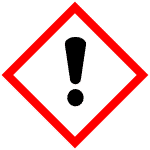
GHS07 |
|---|---|
| 信号词 | Warning |
| 危害声明 | H319 |
| 警示性声明 | P280-P305 + P351 + P338-P337 + P313 |
| 个人防护装备 | Eyeshields;full-face respirator (US);Gloves;multi-purpose combination respirator cartridge (US);type ABEK (EN14387) respirator filter |
| 危害码 (欧洲) | Xn:Harmful; |
| 风险声明 (欧洲) | R10;R20/21/22;R68 |
| 安全声明 (欧洲) | S36/37 |
| 危险品运输编码 | UN 1170 |
| WGK德国 | 1 |
| RTECS号 | DG8960000 |
| 海关编码 | 29270000 |
Synonym:C.I. Acid Red 2; 2-(4-Dimethylaminophenylazo)benzoic acid; C.I. 13020; p-(Dimethylamino)azobenzene-o-carboxylic acid; Methyl Red Section 2 - COMPOSITION, INFORMATION ON INGREDIENTS
Risk Phrases: None Listed. Section 3 - HAZARDS IDENTIFICATION EMERGENCY OVERVIEW
Not available. Potential Health Effects Eye: Contact may cause transient eye irritation. This product contains an anionic dye. Similar dyes have not caused injury to the cornea or conjunctiva in documented exposure cases with human or rabbit eyes. Skin: May cause skin irritation. Ingestion: May cause irritation of the digestive tract. The toxicological properties of this substance have not been fully investigated. Inhalation: May cause respiratory tract irritation. The toxicological properties of this substance have not been fully investigated. Chronic: Chronic exposure may cause liver damage. Section 4 - FIRST AID MEASURES Eyes: In case of contact, immediately flush eyes with plenty of water for at least 15 minutes. Get medical aid. Skin: In case of contact, flush skin with plenty of water. Remove contaminated clothing and shoes. Get medical aid if irritation develops and persists. Wash clothing before reuse. Ingestion: If swallowed, do not induce vomiting unless directed to do so by medical personnel. Never give anything by mouth to an unconscious person. Get medical aid. Inhalation: If inhaled, remove to fresh air. If not breathing, give artificial respiration. If breathing is difficult, give oxygen. Get medical aid. Notes to Physician: Section 5 - FIRE FIGHTING MEASURES General Information: As in any fire, wear a self-contained breathing apparatus in pressure-demand, MSHA/NIOSH (approved or equivalent), and full protective gear. Combustion generates toxic fumes. This material in sufficient quantity and reduced particle size is capable of creating a dust explosion. Extinguishing Media: For small fires, use water spray, dry chemical, carbon dioxide or chemical foam. Section 6 - ACCIDENTAL RELEASE MEASURES General Information: Use proper personal protective equipment as indicated in Section 8. Spills/Leaks: Clean up spills immediately, observing precautions in the Protective Equipment section. Sweep up, then place into a suitable container for disposal. Avoid generating dusty conditions. Provide ventilation. Section 7 - HANDLING and STORAGE Handling: Wash thoroughly after handling. Use with adequate ventilation. Minimize dust generation and accumulation. Avoid contact with eyes, skin, and clothing. Avoid ingestion and inhalation. Storage: Store in a cool, dry, well-ventilated area away from incompatible substances. Section 8 - EXPOSURE CONTROLS, PERSONAL PROTECTION Engineering Controls: Facilities storing or utilizing this material should be equipped with an eyewash facility and a safety shower. Use adequate ventilation to keep airborne concentrations low. Exposure Limits CAS# 493-52-7: Personal Protective Equipment Eyes: Wear appropriate protective eyeglasses or chemical safety goggles as described by OSHA's eye and face protection regulations in 29 CFR 1910.133 or European Standard EN166. Skin: Wear appropriate protective gloves to prevent skin exposure. Clothing: Wear appropriate protective clothing to minimize contact with skin. Respirators: Follow the OSHA respirator regulations found in 29 CFR 1910.134 or European Standard EN 149. Use a NIOSH/MSHA or European Standard EN 149 approved respirator if exposure limits are exceeded or if irritation or other symptoms are experienced. Section 9 - PHYSICAL AND CHEMICAL PROPERTIES Physical State: Solid Color: dark red to purple Odor: none reported pH: Not available. Vapor Pressure: Negliglble. Viscosity: Not available. Boiling Point: Not available. Freezing/Melting Point: 179-182 deg C Autoignition Temperature: Not applicable. Flash Point: Not applicable. Explosion Limits, lower: Not available. Explosion Limits, upper: Not available. Decomposition Temperature: Not available. Solubility in water: Insoluble in water. Specific Gravity/Density: Not available. Molecular Formula: C15H15N3O2 Molecular Weight: 269.30 Section 10 - STABILITY AND REACTIVITY Chemical Stability: Stable under normal temperatures and pressures. Materials containing similar functional groups can decompose at elevated temperatures. Conditions to Avoid: Dust generation, excess heat. Incompatibilities with Other Materials: Strong oxidizing agents. Hazardous Decomposition Products: Nitrogen oxides, carbon monoxide, carbon dioxide. Hazardous Polymerization: Has not been reported. Section 11 - TOXICOLOGICAL INFORMATION RTECS#: CAS# 493-52-7: DG8960000 LD50/LC50: Not available. Carcinogenicity: Methyl Red - Not listed by ACGIH, IARC, or NTP. Other: See actual entry in RTECS for complete information. Section 12 - ECOLOGICAL INFORMATION Section 13 - DISPOSAL CONSIDERATIONS Dispose of in a manner consistent with federal, state, and local regulations. Section 14 - TRANSPORT INFORMATION IATA Shipping Name: Not regulated. Hazard Class: UN Number: Packing Group: IMO Shipping Name: Not regulated. Hazard Class: UN Number: Packing Group: RID/ADR Shipping Name: Not regulated. Hazard Class: UN Number: Packing group: Section 15 - REGULATORY INFORMATION European/International Regulations European Labeling in Accordance with EC Directives Hazard Symbols: Not available. Risk Phrases: Safety Phrases: S 24/25 Avoid contact with skin and eyes. WGK (Water Danger/Protection) CAS# 493-52-7: 2 Canada CAS# 493-52-7 is listed on Canada's DSL List. CAS# 493-52-7 is not listed on Canada's Ingredient Disclosure List. US FEDERAL TSCA CAS# 493-52-7 is listed on the TSCA inventory. SECTION 16 - ADDITIONAL INFORMATION N/A |
|
~% 
493-52-7 |
| 文献:Rupp; Loose Chemische Berichte, 1908 , vol. 41, p. 3906 |
|
~% 
493-52-7 |
| 文献:Rupp Archiv der Pharmazie (Weinheim, Germany), 1915 , vol. 253, p. 372 Full Text Show Details Tizard Journal of the Chemical Society, 1910 , vol. 97, p. 2487 Full Text Show Details Schorger Industrial and Engineering Chemistry, 1923 , vol. 15, p. 742 Chem. Zentralbl., 1923 , vol. 94, # IV p. 933 Full Text Show Details Merck Patent: DE409282 ; Fortschr. Teerfarbenfabr. Verw. Industriezweige, vol. 14, p. 955 |
| 上游产品 3 | |
|---|---|
| 下游产品 2 | |

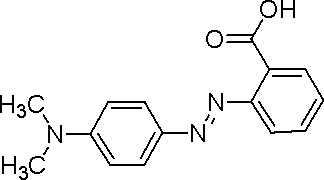
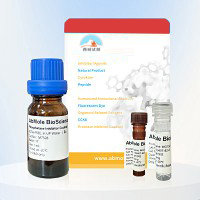
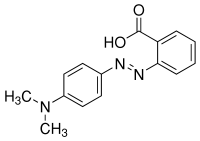
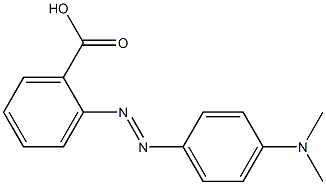
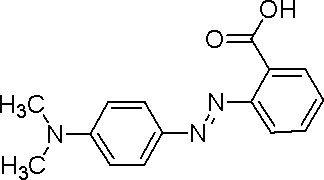

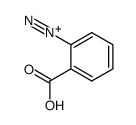
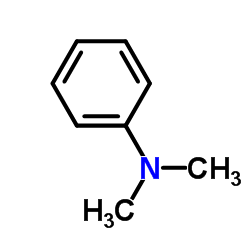
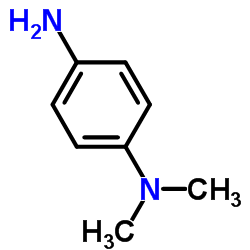





 浙公网安备 33010802013016号
浙公网安备 33010802013016号